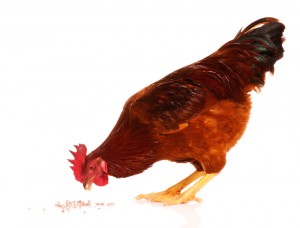Several farms in Indiana have tested positive for the presence of highly pathogenic H7N8 avian influenza (HPAI), which has resulted in a ban on U.S. poultry from several countries. South Korea and Japan announced this weekend that fresh poultry meat from the United States will not be allowed into those countries.
 Nine poultry farms in Indiana have tested positive for some form of the bird flu. The farms are all within the control, or quarantine, area that was established after the first farm was affected. Experts think the total number of birds sickened could be more than 100,000. This outbreak could delay the reopening of some export markets to U.S. poultry products.
Nine poultry farms in Indiana have tested positive for some form of the bird flu. The farms are all within the control, or quarantine, area that was established after the first farm was affected. Experts think the total number of birds sickened could be more than 100,000. This outbreak could delay the reopening of some export markets to U.S. poultry products.
USDA labs are testing to see the strain of H7N8 confirmed at the nine Indiana farms. The Centers for Disease Control and Prevention is stressing that the risk of H7N8 to humans is very low; in fact, it is not ever infected people. The Asian influenza viruses can make people sick. Workers are slaughtering all birds at the nine farms and destroying their carcasses.
This is the first avian influenza outbreak since last year’s multi-state outbreak that saw the culling of millions of birds. That outbreak drove up the price of eggs and caused a shortage of turkeys for the Thanksgiving holiday.
Dr. T.J. Myers, associate deputy administrator of the USDA’s Animal and Plant Health Inspection Service (APHIS) said, “this is a different strain of virus than the strain we saw during the 2015 outbreak. This particular case is an H7N8 virus. It is a significant virus that does need an immediate response in order to contain it and prevent spread to other facilities.”
This particular strain is more common in wild birds. HPAI is rare in the U.S. Scientists do not know how this strain mutated into a pathogenic form. While last year’s virus originated in Asia, this new strain most likely originated in North America.




